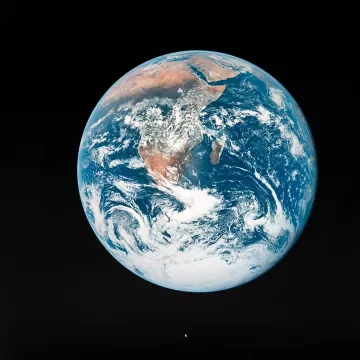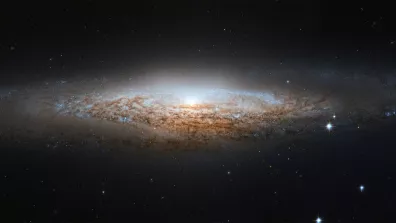CNES’s Earth Sciences programme aims to enhance our knowledge and understanding of the Earth system.
Objectives
Earth is a complex system composed of subsystems encompassing a whole host of interacting processes and parameters linking physical and living environments across a broad continuum of temporal and spatial scales (from a few seconds to tens of thousands of year, and from the centimetre to the entire globe). What also fundamentally characterizes Earth is that it is both our home planet and undergoing extensive environmental changes due to our own activities. The science and social challenges that come with global change and environmental issues are therefore closely tied.
CNES’s Earth sciences, environment and climate programme aims to:
- Advance knowledge and understanding of how the Earth system works (internal processes specific to each environment)
- Advance our understanding and assessment of climate change and its effects, as well as human impacts on the global environment
- Study the mechanisms driving major cycles like the water cycle and bio-geochemical cycles
- Study exchanges at the interfaces between environments (coasts/littoral, cryosphere)
- Support integrated environmental management and sustainable development, and monitoring of resources and environmental hazards
Such research helps to satisfy key social needs that call increasingly for current and validated environmental data. Access to data and development of sophisticated derived services is a burgeoning field carrying major scientific, application and social stakes. Coordinated action through research bodies and/or data and services hubs generating data products makes it possible to pool efforts and develop a national research infrastructure to spearhead innovation. The scientific community is gearing up to generate and supply high-quality data products through research proposals leveraging satellite, in-situ, aerial and balloon data and models across local, regional and global scales.
Subject matters
- Continental biosphere
- Atmospheric composition and carbon cycle
- Coasts, littoral and marine cryosphere
- Water cycle
- Internal geophysics, geodynamics and geodesy
- Oceanography
- Atmospheric physics and meteorology
- Risks and health, tele-epidemiology




